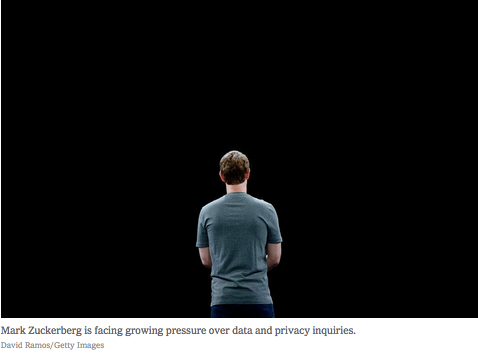And then, just as suddenly, we found ourselves in the second inning. The cool self-driving car killed a pedestrian; the cool Facebook platform enabled Russian troll farms to divide us and inject fake news into our public life; the uncool totalitarian government learned how to use the same facial recognition tools that can ease your way through passport control to single you out in a crowd for arrest.
And Mark Zuckerberg, who promised to connect us all — and that it would all be good — found himself on the cover of Wired magazine, with his face cut, bruised and bandaged, as if he’d been hit by a fastball. He wasn’t alone. In inning two, we started to feel beat up by the same platforms and technologies that had enriched, empowered and connected our lives.
Silicon Valley, we have a problem.
What to do? For problems like this, I like to consult my teacher and friend Dov Seidman, CEO of LRN, which helps companies and leaders build ethical cultures, and the author of the book, “How: Why How We Do Anything Means Everything.”
“The first inning’s prevailing ethos was that any technology that makes the world more open by connecting us or makes us more equal by empowering us individually must, in and of itself, be a force for good,” Seidman began. “But, in inning two, we are coming to grips with the reality that the power to make the world more open and equal is not in the technologies themselves. It all depends on how the tools are designed and how we choose to use them. The same amazing tech that enables people to forge deeper relationships, foster closer communities and give everyone a voice can also breed isolation, embolden racists, and empower digital bullies and nefarious actors.”




